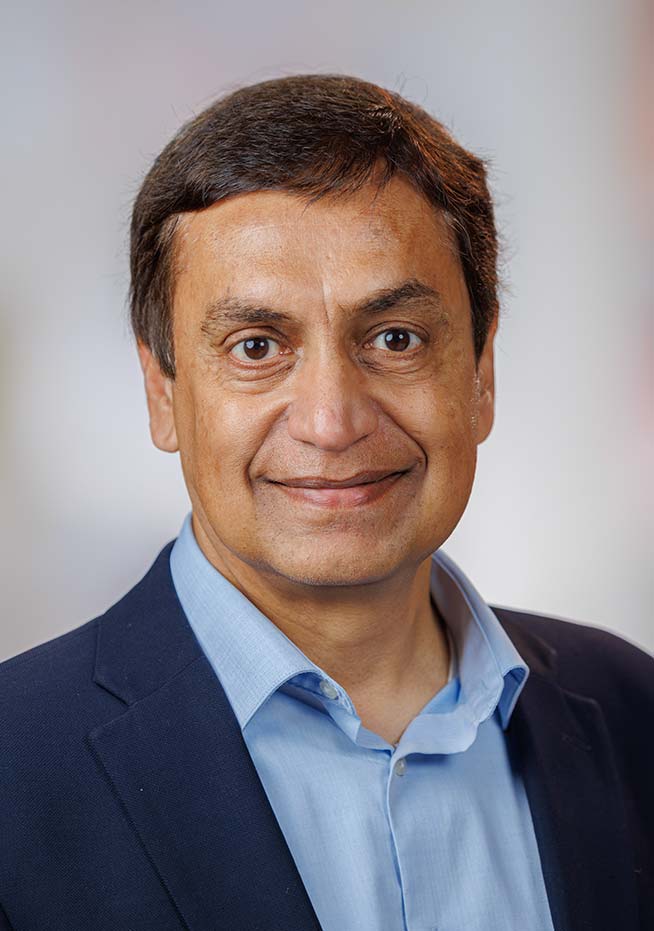
Madhav Dhodapkar receives Milton B. Rubin Family Endowed Chair
Mike Rubin will always remember April Fool’s Day in 1987. On that day, he received a life-saving bone marrow transplant. No joke.
The transplant also reshaped the trajectory of his life, prompting him to relocate from New York City to Seattle, where he received a transplant at Fred Hutch Cancer Center to treat his leukemia. Nearly four decades later, Rubin has come full circle: instead of receiving gifts, he now solicits them as senior director of philanthropic gifts at Fred Hutch.
In that role, Rubin relies on his personal story to connect with donors. One donor in particular — his father — had an especially keen understanding of the impact of private support.
Five years ago, Milton Rubin created the Milton B. Rubin Family Endowed Chair to express his gratitude for the care his son received at Fred Hutch decades back. An executive in institutional investment management, Milton Rubin said that endowing a chair allows him to increase his support for Fred Hutch in a meaningful way.
“It’s only through research that we experienced an outcome that was very favorable for Michael,” he said.
The inaugural recipient, Rainer Storb, MD, helped create and refine blood stem cell transplantation as a treatment for blood disorders, cementing Fred Hutch’s reputation as a transplant leader. Storb also contributed to the understanding and treatment of graft-vs.-host disease, or GVHD, a common post-transplant complication.
The new holder of the chair, Madhav Dhodapkar, MBBS, is the scientific director of Fred Hutch’s Multiple Myeloma Program. He previously led the Winship Center for Cancer Immunology at Emory University.
Dhodapkar believes that a cure for multiple myeloma is possible. Multiple myeloma is cancer of the bone marrow and is characterized by cancer cells that pop up throughout the body as cancerous plasma cells overtake healthy blood cells.
Dhodapkar is new to Fred Hutch but not new to scientific research. For years, his lab has been studying the biology of multiple myeloma as well as some basic science aspects of human immunology.
“It’s gratifying to see immune-based approaches, some originating in part from what we were studying years ago, now becoming mainstream for how we treat this specific cancer,” said Dhodapkar. “It has led to major improvements and outcomes for our patients, but the work is not done, and we still have a way to go. The support that this chair brings will allow us to extend our research to new horizons outside the scope of our current funding.”